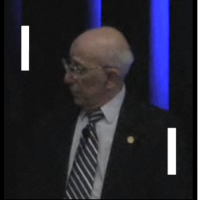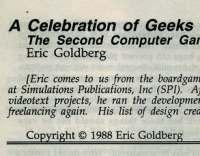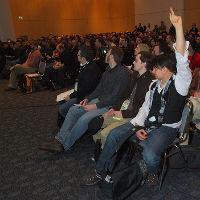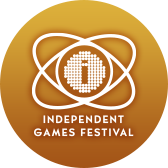
GDC 2011 Adds Biz, Production Talks From Sony, WB, CCP Veterans
Organizers of the 2011 Game Developers Conference have revealed Production and Business & Management Track talks spanning Sony, Warner Bros. and CCP veterans for the Main Conference at the 25th edition of the industry's leading digital entertainment event next March.
The Production and Business & Management Tracks take place from Wednesday March 2nd to Friday March 4th, 2011 during the pre-eminent, San Francisco-based event, alongside other discipline-specific Tracks dedicated to art, audio, programming and game design.
As the overall session list for the event further expands, and following notable Game Design/Programming Track and Art/Audio Track highlights, organizers are spotlighting these two final Main Conference tracks.
All of the above Track sessions are open to those with a Main Conference or All-Access Pass. Some of the top new sessions debuting in the Production and Business & Management Tracks are as follows:
Production Track
Newly revealed as a key GDC 2011 Production Track lecture, 'More Pirates on a Burning Ship and Other Leadership Challenges' sees WB Games Seattle GM and Microsoft veteran Laura Fryer discussing key game business learnings.





















